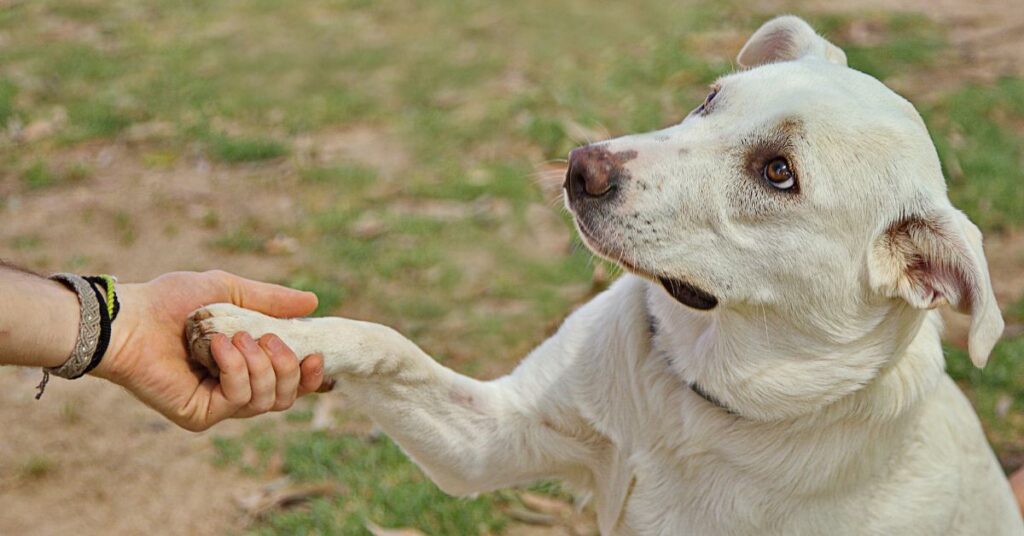Dogs have been humanity’s loyal companions for thousands of years, and their intelligence is often a topic of fascination. From solving problems to reading human emotions, dogs exhibit a unique blend of cognitive skills. With all the talk lately about AI, have you ever wondered what studying CI, canine intelligence can reveal about human brains and behavior? Exploring the parallels between human and dog cognition not only deepens our bond with our furry friends but also sheds light on how we think and learn.
This article is courtesy of Pooch Scoop servicing Westerville OH
Let’s dive into what canine intelligence can teach us about ourselves, backed by research and insights from the world of dog behavior and neuroscience.
Understanding Canine Intelligence

Dogs are renowned for their ability to follow commands, interpret social cues, and even exhibit empathy. Researchers often evaluate canine intelligence through tests involving memory, problem-solving, and communication skills. For instance, the famed Border Collie, Chaser, learned over 1,000 words, demonstrating remarkable language comprehension comparable to that of a toddler.
But how does this help us? By understanding how dogs learn and adapt, we can draw parallels to how humans process information. Dogs’ reliance on observation and repetition mirrors the way humans build habits and routines—a valuable reminder of the importance of consistency in learning.
Emotional Intelligence: Dogs and Empathy
One of the most fascinating aspects of dog intelligence is their ability to perceive human emotions. Dogs can read our facial expressions and respond to our moods, a skill rooted in their evolutionary history alongside humans. Studies suggest that dogs experience a form of empathy, evident in their comforting behaviors when they sense a human is upset.
This insight can teach us about the universality of emotional intelligence. Just like dogs, humans thrive on connection and understanding. By fostering our own emotional awareness and empathy, we can strengthen relationships and navigate social complexities more effectively.
Problem-Solving and Creativity
Dogs are natural problem-solvers. Whether it’s figuring out how to open a gate or using teamwork in canine pack behavior, they display a practical approach to overcoming challenges. Studies like those conducted by Dr. Brian Hare’s Dognition project show that dogs use different strategies to solve problems, from trial-and-error to observing human cues.

For humans, this highlights the value of adaptability. Watching how dogs experiment and learn from mistakes reminds us of the importance of resilience and thinking outside the box—skills that are critical in both personal and professional growth.
Social Learning: The Power of Observation
Dogs excel at learning through observation, a skill that aligns closely with how humans acquire knowledge. For example, many dogs pick up behaviors like opening doors or ringing bells simply by watching their humans or other dogs. This type of social learning emphasizes the importance of modeling and mentorship in human development.
In our own lives, this reinforces the concept that learning doesn’t always come from formal instruction. Observing others, whether peers, leaders, or mentors, can be a powerful way to acquire new skills and behaviors.
What Dogs Teach Us About Ourselves
Here are some key takeaways from studying canine intelligence that apply to human behavior:
- The Importance of Connection: Dogs thrive on social bonds, reminding us of our own need for community and relationships.
- Adaptability is Key: Dogs’ problem-solving abilities show us the value of resilience and creative thinking.
- Learning Through Action: Like dogs, humans learn best through repetition and observation—lessons we can apply to mastering new skills.
- Emotional Awareness Matters: Empathy and emotional intelligence are crucial, not just for dogs, but for humans navigating complex social worlds.
Final Thoughts: A Two-Way Street
Understanding dog intelligence isn’t just about marveling at their skills; it’s a mirror reflecting aspects of our own nature. By observing how dogs think, learn, and connect, we can uncover truths about ourselves and even enhance our approach to personal development.
To deepen your understanding of canine intelligence and how it connects to human behavior, check out resources like Dr. Brian Hare’s research or explore books like The Genius of Dogs.


